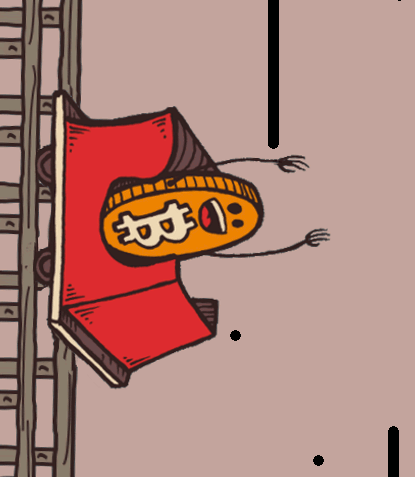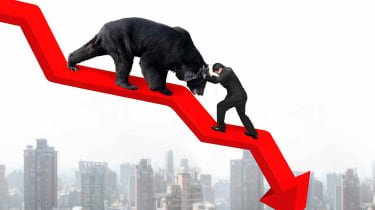👇🏻👇🏻👇🏻Open The Post and Read 👇🏻👇🏻👇🏻
🤔🤔🤔MY OPINION :
I think that the bear 🐻 market is one of the main factor that helps you to build a good personality and a strong mindset as a professional trader, and not be afraid of these situations and scenarios.

What Is a Bear Market?
A bear market is when a market experiences prolonged price declines. It typically describes a condition in which securities prices fall 20% or more from recent highs amid widespread pessimism and negative investor sentiment.
Bear markets are often associated with declines in an overall market or index like the S&P 500, but individual securities or commodities can also be considered to be in a bear market if they experience a decline of 20% or more over a sustained period of time—typically two months or more. Bear markets also may accompany general economic downturns such as a recession. Bear markets may be contrasted with upward-trending bull markets.
Key TakeAways :
Bear markets occur when prices in a market decline by more than 20%, often
accompanied by negative investor sentiment and declining economic prospects.1
Bear markets can be cyclical or longer-term. The former lasts for several weeks
or a couple of months and the latter can last for several years or even decades.
Short selling, put options, and inverse ETFs are some of the ways in which
investors can make money during a bear market as prices fall.

What is Bear 🐻 market ?
Understanding Bear Markets
Stock prices generally reflect future expectations of cash flows and profits from companies. As growth prospects wane, and expectations are dashed, prices of stocks can decline. Herd behavior, fear, and a rush to protect downside losses can lead to prolonged periods of depressed asset prices.
One definition of a bear market says markets are in bear territory when stocks, on average, fall at least 20% off their high. But 20% is an arbitrary number, just as a 10% decline is an arbitrary benchmark for a correction. Another definition of a bear market is when investors are more risk-averse than risk-seeking. This kind of bear market can last for months or years as investors shun speculation in favor of boring, sure bets.
👉🏻SOURCE : https://www.investopedia.com/terms/b/bearmarket.asp👈🏻
What do you think guys 💬

Leave a vote & comment 👇🏻 guys 🔉💬
~Thereaaal_med